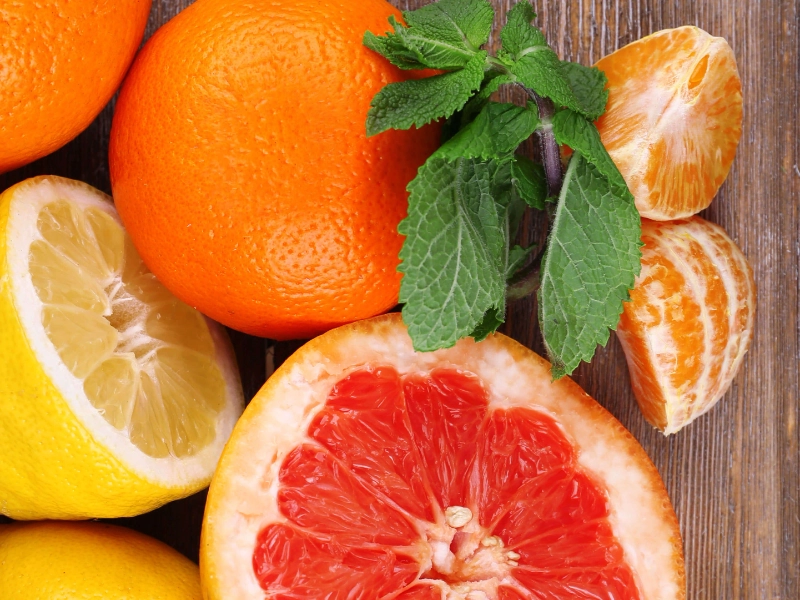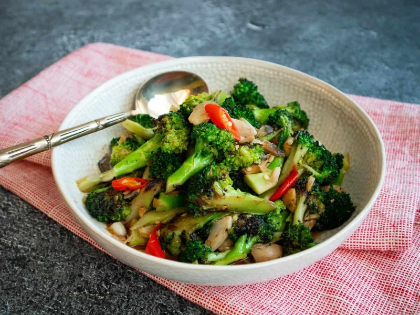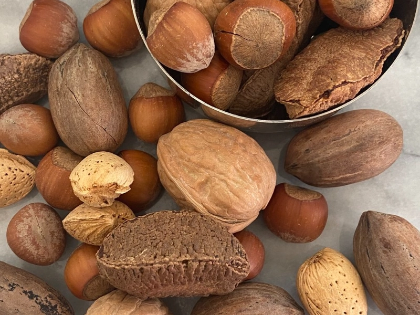The Power of Vitamin C in Fighting Free Radicals
1. Understanding Free Radicals
 Advertisement
Advertisement
Unstable chemicals known as free radicals can seriously harm body's cells. While they are created organically during metabolic activities, outside elements such pollution, radiation, and poor food choices can also cause them. Highly reactive these molecules can cause oxidative stress, which is connected to many diseases including cancer, heart disease, and ageing as well as other conditions. Finding efficient means to counteract the negative consequences of free radicals depends on an awareness of their function.
2. The Role of Antioxidants

Antioxidants are compounds that assist free radicals be neutralised, therefore shielding the body from oxidative stress. They stop free radicals from damaging cells by giving electrons to stabilise them. Though many must be acquired via diet, the body generates certain antioxidants on its own. Fruits, vegetables, and other foods' vitamins, minerals, and phytochemicals help greatly supply these protecting molecules. Of them, one of the most powerful antioxidants is vitamin C.
3. Vitamin C: A Powerful Antioxidant

Essential for many body operations, vitamin C—also called ascorbic acid—is a water-soluble vitamin. Although its immune system strengthening function is well known, its antioxidant qualities are just as crucial. Regarding scavenging free radicals and lowering oxidative stress, vitamin C is quite successful. Vitamin C improves general health by neutralising these damaging chemicals and helps shield cells from injury.
4. Sources of Vitamin C

Rich sources of vitamin C must be included into your diet if you want to fully leverage this vitamin. The best sources of vitamin C are fruits and vegetables; citrus fruits such as oranges, lemons, and grapefruits especially abound in this vitamin. Additional great sources are bell peppers, broccoli, Brussels sprouts, kiwi, and strawberries. Maintaining ideal vitamin C levels and improving the body's capacity to combat free radicals depend on a varied diet including these items.
5. The Impact of Vitamin C on Skin Health
Maintaining good skin depends on vitamin C in great part. Its antioxidant qualities guard the skin against environmental toxins and UV radiation damage. Furthermore vital for collagen synthesis—which underlines skin suppleness and firmness—is vitamin C. Consuming vitamin C regularly can help one have a better complexion, less appearance of wrinkles, and generally better skin health. Popular for improving skin vitality are topical treatments using vitamin C serums as well.
6. Vitamin C and Immune Function
To run best, the immune system depends on vitamin C. This vitamin supports several cellular activities of both the innate and adaptive immune systems. It boosts the synthesis of white blood cells, which are essential for combat of infections. Vitamin C is a vital vitamin for general health since it lowers oxidative stress and boosts immunological responses, therefore strengthening the body's capacity to prevent diseases.
7. The Link Between Vitamin C and Chronic Diseases
Studies have indicated that enough vitamin C may lower the incidence of chronic diseases including some malignancies and heart disease connected to oxidative stress. Vitamin C helps preserve normal blood vessels and lowers inflammation by fighting free radicals, therefore supporting cardiovascular health. Higher vitamin C levels also seem to be linked to a reduced incidence of several malignancies, therefore underscoring its preventive power in relation to disease.
8. Supplementation and Dosage
Although getting vitamin C from food sources is best, some people could benefit from supplements particularly if their diet is inadequate. Though vitamin C pills are readily available, before beginning any new supplement program it is advisable to see a healthcare practitioner. Although age and gender affect the advised daily requirement (RDA) for vitamin C, for most adults it falls between 65 and 90 mg daily. High dosages can cause stomach problems, hence moderation is essential.
9. Summary of Vitamin C's Power Against Free Radicals
All things considered, vitamin C is a great friend in the battle against oxidative stress and free radicals. Apart from shielding cells from harm, its antioxidant qualities strengthen immune system and enhance skin condition. You may maximise the advantages of vitamin C by including a range of foods high in it into your diet and, when needed, thinking about supplements. Knowing the value of vitamin C in fighting free radicals helps people to choose their diets carefully so promoting long-term well-being.









